Inventory of relevant SOGIESC case law and pending cases before the ECtHR and CJEU 2025

In order to focus our strategic litigation efforts across Europe to fully protect and advance LGBTI rights, with this inventory ILGA-Europe wants to support members and partners across the region to identify trends and gaps in protection at the European level, which can commonly be tackled through litigation. The inventory can further strengthen cooperation and help guide our work and efforts by others in bringing forward and supporting strategic cases.
This inventory and continuous assessment of the European landscape informs ILGA-Europe’s ongoing engagement in strategic litigation through identification and support of strategic opportunities.
This inventory covers relevant SOGIESC cases from 2010 up until December 2024.
Joint statement welcoming EU’s top court judgment to correct a trans man’s gender identity data in national registry
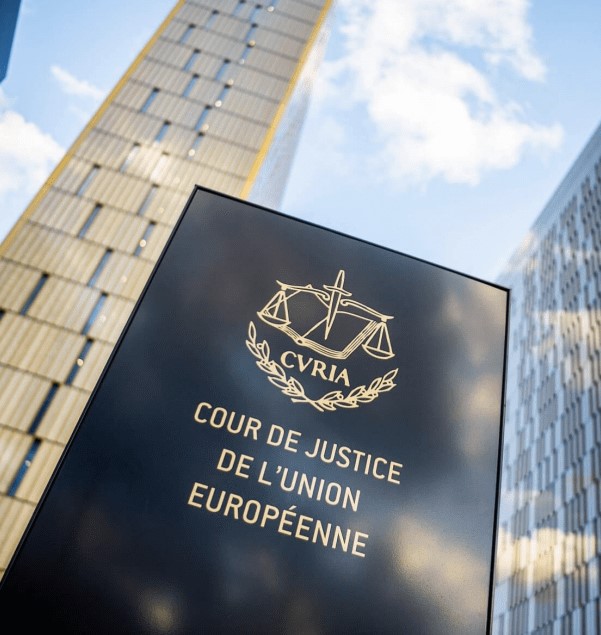
Today, the European Court of Justice (CJEU) issued a judgment in the case of Deldits (C-247/23), stating that national authorities responsible for keeping public registers (such as asylum registers) should correct data on gender identity when it is inaccurately recorded. This decision carries significant implications for advancing human rights protections in the EU, at a time when trans people and human rights in general are under massive attack.
Background
A trans refugee in Hungary seeks legal gender recognition
This case concerns an applicant who was granted refugee status in Hungary based on a well-founded fear of persecution in his country of origin because of his gender identity. The applicant requested the correction of his gender marker and name on the national asylum registry (as it reflected his name and sex at birth) under Article 16 of the EU’s General Data Protection Regulation (GDPR) on the basis that the data was inaccurate.
A legal paradox: Granted asylum but denied recognition
Despite the Hungarian authorities granting the applicant refugee status on this ground, he found himself in a paradox: his gender marker was registered incorrectly, and he could not correct it as there is no legal framework regulating the conditions for legal gender recognition (LGR) in the country.
Hungary’s ban on legal gender recognition
This case is a pivotal moment in the ongoing battle for the rights of trans people in Hungary, which has banned LGR for citizens in 2020, whilst refugees never had access to LGR. Moreover, Hungarian authorities requested proof of surgery as a precondition to change the applicant’s gender marker – a practice that the European Court of Human Rights has declared to be in violation of the right to respect for private and family life as protected by Article 8 of the Convention since 2017.
GDPR and human rights
The case raised several important questions for the CJEU: whether the GDPR mandates the correction of gender markers in national registries upon request. If so, does this request require evidence? If so, does it need to include proof of surgical intervention?
CJEU ruling strengthens trans rights and data accuracy rules
Today’s CJEU ruling addresses these questions, and is very favourable. It confirms that the right to rectification under Article 16 GDPR, taken in conjunction with the principle of data accuracy under Article 5(1)(d) GDPR, require authorities, without undue delay, to correct personal data concerning gender identity which is held in public registers when such data is inaccurate.
Importantly, the Court stated that if the purpose of collecting personal data is to identify the individual, the data should refer to the person’s lived gender identity, and not the identity assigned to them at birth. In that respect, the Court underlined that a Member State cannot invoke the absence of a domestic procedure for LGR to limit the exercise of the right to rectification under GDPR.
Secondly, the Court clarified that a person may need to provide reasonable proof to correct inaccurate data, but Member States cannot require proof of ‘gender reassignment surgery’ “under any circumstances”. The Court stated that such a requirement goes against the right to personal integrity (Article 3) and the right to privacy (Article 7) of the Charter of Fundamental Rights.
The Hungarian authorities must now allow for a change of gender marker in the Asylum Registry and all other national registries. However, instead of patchwork procedures by each data controlling entity in the country, the Hungarian government needs to urgently create legal certainty and set up a legal framework for quick, transparent and accessible procedure for LGR, where individuals can adapt their documents to match with their gender identity. The European Court of Human Rights already found that Hungary violates the European Convention on Human Rights for failing to allow such procedure (R.K. v. Hungary, 2023) including for trans refugees (Rana v Hungary, 2020).
The CJEU ruling is also binding upon national authorities keeping a public register across all EU Member States.
Reactions
TGEU Expert Advisor, Richard Köhler, comments: “Trans people deserve accurate personal data—full stop. Today’s Court ruling sends a clear message: while Member States control legal gender recognition processes, they must respect EU law. Evidence can be requested, but surgical proof? Absolutely forbidden.
This isn’t just about refugees—it’s also about asylum seekers and citizens. Where public records are kept to identify people, Member States need to recognise that a person’s real identity is what matters, not labels given at birth. The Court couldn’t be clearer: surgery requirements and forced sterilisation violate EU data protection law. Now, Member States must take action. No more delays. No more excuses. The message is simple: recognise people’s identities without invasive demands. The EU Commission must support Member States with implementation and take decisive action against those who continue to deny trans people their fundamental rights.“
ILGA-Europe Advocacy Director, Katrin Hugendubel, said: “This judgment is a significant step forward for the rights of trans people, including refugees, in the EU – especially in Member States without any legal framework for LGR. At a time when the rights of trans and LGBTI people in general are under constant threat, we call on Member States to implement this ruling by ensuring that their frameworks for collecting and storing personal data are GDPR and fundamental rights compliant. We also call on the EU Commission to actively monitor the implementation of this judgment and to encourage Member States to bring their frameworks for LGR in line with international human rights and EU law standards.”
According to Gábor Győző, the attorney representing the applicant in the proceedings on behalf of Háttér Society and the Hungarian Helsinki Committee, “it is very important and welcomed that the Court not only addressed the specifics of the case, but also assessed the Hungarian legal framework and the protection of the rights of trans people in a broader context. Moreover, this decision also serves as a guideline for all other Member States on this issue.”
“Trans people have been subject to constant governmental harassment in recent years. The judgment is a ray of hope that they cannot be deprived of their rights and denied their existence,” added Eszter Polgári, Director of the Legal Program of Háttér Society.
Joint calls to action
We call on EU governments to adhere to this CJEU ruling and proactively check their national procedures for a GDPR and European human rights compliant framework that allows individuals to quickly, transparently and in an accessible way update gendered data that is held on them. As EU data protection rules apply to anyone in the EU, they also need to ensure data of asylum seekers alongside refugees can be easily updated to reflect a person’s gender identity.
We call on the EU Commission to monitor the implementation of the Deldits case into national case law and adherence of the national authorities to the final decision. Failure in compliance needs to lead to infringement procedures. National Data Protection Authorities (DPAs) should equally monitor implementation and issue fines for non-compliant data controllers.
For a uniform understanding and application across the EU on both the Deldits and Mousse CJEU case law, we call on the Commission to provide practical guidance and the possibility to exchange for Member States and data controllers on implementation.
As EU data protection rules also apply to private actors, any organisation collecting, storing, or processing personal data on names and gender markers needs to check their processes for allowing correction of the data that they hold.
We urge EU institutions and Member States to ensure trans people have access to quick, transparent and accessible paths to LGR.
Congratulations to everyone involved for this incredible victory. Your efforts and dedication will make a huge impact on trans lives across the EU.
ILGA-Europe and TGEU provided support in the CJEU procedure to Háttér Society, which represented the applicant together with the Hungarian Helsinki Committee in this case.
Context
Today’s judgement comes on the heels of a groundbreaking data protection case strengthening the rights of non-binary people, Mousse (C-394/23). In this judgment, the CJEU found that the collection of gendered civil tiles (Mr/Mrs) when purchasing train tickets by a railway company is not necessary for providing transportation services and hence not compliant with the GDPR principle of data minimisation.
EU data privacy rules
The GDPR is Europe’s powerful privacy law that protects people’s personal data by giving them control over how private and public organisations collect, use and store their information. It applies to all organisations handling EU residents’ data anywhere in the world, and goes far beyond cookie settings—it ensures organisations get proper consent, minimise data collection, secure information properly, and allow people to access, correct, or delete their own data.
Today’s judgment particularly addresses national authorities and public registers. Therefore, it goes beyond asylum registers and may well have implications for national civil registries and how such personal data can be corrected.
The Court reaffirmed that regulation of legal gender recognition continues to be within the remit of Member States, but that they must respect EU data protection and fundamental rights when doing so.
Read Háttér Society’s press release here.
European court rules teacher’s dismissal over gay blog violated free speech

The European Court of Human Rights rendered a judgement in a case where the Polish authorities fired a school teacher for writing on a blog for adult gay men featuring some sexually explicit content.
In February, in the case of P. v. Poland, the European Court of Human Rights (ECtHR) ruled that Poland violated Article 10 of the European Convention on Human Rights (freedom of expression). The case involved a secondary school teacher who was dismissed for writing an illustrated diary under a pseudonym on a public blog intended for adult gay men, which included some sexually explicit content.
The authorities considered that the applicant’s blog was an affront to the domestic social mores prevailing in Poland because it talked in explicit terms about sexuality. The applicant argued that the authorities had wrongly perceived his blogging activity as attesting to his lack of morals and posing a threat to the ethical education of his students, and that the sanction imposed on him was disproportionate in the circumstances of the case.
ILGA-Europe, together with KPH (Campaign Against Homophobia) and PSAL (the Polish Society of Anti-Discrimination Law) filed a third-party intervention in the case. The intervention informed the European Court about the situation of LGBTI people in Poland and highlighted the States’ obligations under international law and the European Convention on Human Rights (ECHR) framework. It emphasised the States’ obligation to provide effective measures to protect LGBTI persons’ rights to private life and freedom of expression, and to unmask possible discriminatory motives in case of interference with these rights.
While the European Court considered that there was no proof that the applicant’s sexual orientation had been the real reason for his dismissal, it still took into account the fact that the blog depicted same-sex relations when ruling on the breach of his freedom of expression. The Court relied on our intervention, which reminded that the Council of Europe’s Commissioner for Human Rights and the EU Fundamental Rights Agency reported that the prevailing social attitude towards LGBTI persons in Poland was negative. Owing to this, the Court considered important to refer to its previous ruling in the Macatė v Lithuania case, which found a violation of Article 10 as a result of restrictions on the distribution of a book that depicted a same-sex marriage.
The Court considered that the applicant’s dismissal was disproportionate, especially as he did not have any previous record of disciplinary sanctions. It concluded that the Polish authorities did not provide relevant and sufficient reasons for dismissing the applicant from his position as his blogging activity did not threaten the protection of morals of minors in a manner justifying the sanction imposed on him.
According to Annamaria Linczowska, Advocacy and Litigation Officer at Campaign Against Homophobia: “The case itself was a vivid example of discrimination against LGBT+ persons in Poland that time. Using a very serious mechanism – the teacher’s dismissal – the school and later, the commissions, interfered with the teachers’ freedom of speech, his right to be vocal in public about same-sex relationships. The case illustrates the obstacles and discrimination LGBT+ people face in the workplace and in education in Poland. Even though we share the ECtHR’s view regarding the country’s positive obligation to introduce legal tools to ensure respect of private life and freedom of expression, KPH believes that in this case it should have considered also the violation of articles 8 and 14 of the Convention by asserting the fact that applicant’s sexual orientation was a real reason for his dismissal”.
See KPH’s full statement here.
According to Marie-Hélène Ludwig, Senior Strategic Litigation Officer at ILGA-Europe: “We are glad that the Court took into account our joint third-party intervention describing the negative social attitude towards LGBTI persons prevailing in Poland to rule that the domestic authorities breached the applicant’s freedom of expression by dismissing him from his position.”
Joint statement welcoming judgement on Russia’s failure to protect the privacy of personal data
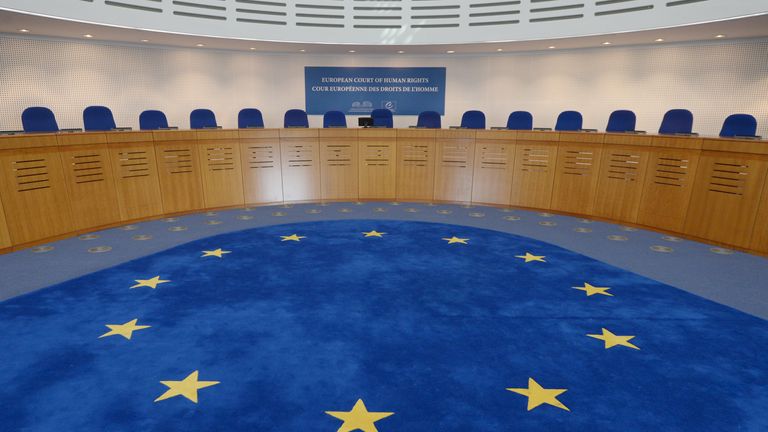
ILGA-Europe and the AIRE Centre welcome the judgement from the European Court of Human Rights in the case of Bazhenov and others v. Russia
Last week, in the case of Bazhenov and others v Russia, the European Court of Human Rights found a violation of Article 8 (right to private and family life) together with Article 14 (prohibition of discrimination) ECHR.
The applicants in this case are a lawyer who provided assistance in a number of high-profile criminal cases related to hate crimes against individuals, and a same-sex couple. The case concerns the disclosure of the applicants’ personal data, including their names, addresses and information about their sexual orientation, on openly homophobic public pages on social networks.
The applicants argued that this exposed them to elevated risks of harassment and made them fear for their lives and health, for the safety of their relatives and employees and for their professional activities. As such, they complained that the national authorities failed in their obligation to ensure effective respect for their private lives (Article 8 ECHR) and protect them from discrimination (Article 14 ECHR). They also complained under Article 13 ECHR that they had no effective remedy as the authorities failed to open a criminal case and conduct an effective investigation to respond adequately to those homophobic incidents.
Sharing of personal information should be a personal choice
ILGA-Europe together with the AIRE Centre submitted a third-party intervention in this case, stating that the sharing of personal information, including sexual orientation, should be an individual’s choice and that there should be safeguards to prevent the disclosure of such personal data. Moreover, national authorities have a positive obligation to conduct an effective investigation into an alleged interference with an individual’s private life, and a person’s sexual orientation should form part of the authorities’ considerations. Finally, we provided an analysis of the risks of discrimination, convictions by authorities and hate crimes that LGBTI individuals face through the non-consensual sharing of information and personal data.
The Court found that the authorities had indeed failed to offer adequate protection in respect of the applicants’ private lives and to protect them from discrimination. Importantly, the Court considered that “the domestic authorities were confronted with prima facie indications that the (…) disclosure of the applicant’s private data without their consent, including information about their sexual orientation, were driven by discriminatory attitudes against LGBTI community”. The Court found that this required an “effective investigation capable of elucidating the homophobic motive behind the breach of the applicants’ privacy and of identifying and, if appropriate, adequately punishing those responsible”.
A particularly vulnerable group, needing heightened protection
Furthermore, the Court recalled that “gender and sexual minorities require special protection from hateful and discriminatory speech because of the marginalisation and victimisation to which they have historically been, and continue to be, subjected.” It noted in this respect that the Russian LGBTI community can be regarded as a particularly vulnerable group, needing heightened protection from stigmatising statements.
Therefore, the Court ruled that domestic authorities had failed to discharge their positive obligation to respond adequately to the non-consensual dissemination of the applicants’ private data, including the information on their sexual orientation, by private individuals, and to investigate in an effective manner whether the dissemination of the data in question had been motivated by homophobic attitudes.
Welcoming the judgement, ILGA-Europe’s Senior Strategic Litigation Officer, Marie-Hélène Ludwig said: “This is a strong judgment in which the Court makes clear that States have a positive obligation to ensure respect for the right to private life, even when this concerns relationships between individuals. We welcome the Court’s observation that preventing and investigating the non-consensual dissemination of private data on one’s sexual orientation is particularly important in view of the vulnerability and risks faced by the LGBTI community in Russia at the moment.”
Last week, the Court also found violations of Article 8 (right to respect for private and family life) and Article 10 (freedom of expression) ECHR in the case of Klimova and Others v. Russia. The case concerned the applicants’ convictions for an administrative offence and/or the blocking of access to their websites or webpages on social networking sites, including one of the oldest and largest LGBTI websites in Russia, for “promoting homosexuality among minors”. The Court concluded that there was an interference with the applicants’ right to freedom of expression. One of the applicants also complained that the security services collected user data related to her personal social networking account and to the social networking community administered by her. The Court found that this amounted to an interference with the applicant’s right to respect for her private life.
Joint statement welcoming CJEU judgment to halt unlawful gender title collection

The EU Court of Justice has judged that it is unlawful for France’s national railway company to force passengers to choose between ‘Mr’ and ‘Ms’ when purchasing train tickets.
Today, the CJEU issued a judgment in the case C-394/23 initiated by the Mousse Association, saying that it is unlawful for a railway company to collect a customer’s gender marker, saying this personal data is not necessary for the purchase of a train ticket and may create a risk of discrimination on grounds of gender identity.
The judgment concerns a case initiated by Mousse representing 64 individuals against France’s national state-owned railway company (SNCF) practice of forcing passengers to choose between the civil titles “Mr” or “Ms” when purchasing train tickets. The train company does not offer a third option and alleged that this data was necessary to personalise its commercial communication based on customers’ presumed gender identity.
The case relies on the General Data Protection Regulation (GDPR)’s principles of data minimisation and accuracy, as well as the fundamental EU law principle of non-discrimination.
The French court asked the CJEU to clarify if common practices in civil, commercial, and administrative communications can help determine whether data collection meets the GDPR’s requirements for being adequate, relevant, and necessary under Article 5(1)(c), and lawful under Article 6(1)(b) and (f). If so, collecting only customers’ titles like “Mr” or “Ms” might be considered necessary and compliant with the principle of data minimisation.
The CJEU was also asked whether the right of individuals to object to the use of their personal data by relying on their specific situation under Article 21 GDPR should be a determining factor in assessing the necessity of the mandatory data collection.
THE CJEU DECISION
The CJEU recalled that the principle of data minimisation requires that collected data be adequate, relevant and limited to what is necessary for the purposes for which those data are processed. The processing of personal data is lawful only if it is necessary for the performance of a contract or for the purposes of a legitimate interest
In this respect, the Court ruled that the personalisation of commercial communications based on presumed gender identity according to a customer civil title is not necessary as it is not objectively indispensable to the performance of a rail transport contract, contrary to what the SNCF and the French State alleged in this case. The Court stated that the railway company could opt for generic and inclusive terms, which are not linked to presumed gender identity, when addressing customers, as this would be a less intrusive solution.
Additionally, the Court rebutted SNCF’s argument that it pursued a “legitimate interest” as it did not comply with the conditions under GDPR to do so. Notably, collecting gender markers cannot be regarded as necessary when the fundamental freedoms and rights of customers prevail over the legitimate interest of data processors.
Importantly, the Court ruled that processing civil titles of customers can in some cases create a risk of discrimination on grounds of gender identity. This is the first time that the CJEU evokes the fundamental EU law principle of non-discrimination to protect the ground of gender identity for trans and non-binary people.
IMPACT
The importance of this judgement therefore extends beyond the applicant’s individual circumstances. All public and private organisations that are required to comply with GDPR in the EU will need to comply with this judgment and stop collecting gender markers when it is not strictly necessary in the light of the purposes for which this data is processed.
The judgment also underscores the broader issue faced by trans and non-binary people who are constantly forced to choose in their everyday lives between two options that do not correspond to their identity. Also, binary trans people, whose identity documents do not match their gender identity, will benefit from fewer mandatory forms asking for a gender marker, when it is not necessary to the service or contract at hand.
According to the EU Fundamental Rights Agency LGBTI survey 2023, almost two-thirds (64 per cent) of trans respondents felt discriminated against in the year before the survey, followed by more than half (51 per cent) of non-binary and gender-diverse respondents, where every second respondent experienced discrimination in the same period,. The survey also found that 15 per cent of non-binary and 35 per cent of trans people said they experienced discrimination when they had to show their ID. In contrast, only one per cent of cisgender endosex respondents reported such issues. Non-binary people make up the largest compound (65 per cent) of the trans community and tend to be younger.
REACTIONS
According to the claimant’s legal representative, Etienne Deshoulières: “The CJEU’s decision marks a significant shift in the relationship between the State and citizens. Previously, the State “owned” the data in civil-status records and prohibited people from modifying that data, except in exceptional circumstances. Now, each citizen “owns” their personal data and grants the State permission to process it within the limits set by the GDPR, including the principles of minimisation and accuracy. The binary distinction of gender under the law has long been the cornerstone of the system that discriminates against sexual and gender minorities. If this legal binary no longer exists, then a broad array of legal discriminations disappears. It would represent the culmination of decades of advocacy for LGBT+ rights.”
TGEU Expert Advisor, Richard Köhler, comments: “Sixty-five per cent of trans people in Europe identify as non-binary, a young and mobile group forced to navigate systems that don’t match their identity. This case signals progress: less paperwork, fewer binary boxes, and a future where EU law finally recognises and protects non-binary and trans lives. The next generation deserves nothing less.”
ILGA-Europe Senior Strategic Litigation Officer, Marie-Hélène Ludwig added: “Today’s ruling is crucial in putting an end to the discrimination on the grounds of gender identity faced by non-binary persons and all who do not identify within the gender binary, and who are forced to choose in their day-to-day lives between two options that do not correspond to their identity. This judgment will have far-reaching effects, as it clearly states that collecting gender markers when it is not strictly needed is not only unlawful but also potentially discriminatory. The judgement clearly sets an obligation for all businesses, organisations and public services to do away with unnecessary binary data collection, according to EU law.”
ILGA-Europe and TGEU provided support to Association Mousse and its lawyers, Etienne Deshoulières from Deshoulières Avocats and Johan Heymans, Yasmina El Kaddouri and Delphine Holemans from VS Advocaten, in this case.
Read Association Mousse’s full statement here.
Joint statement on today’s long-awaited judgment from the European Court of Human Rights on violations of LGBTI human rights in Armenia

ILGA-Europe and TGEU celebrate the judgement of the European Court of Human Rights in the case of Minasyan and Others v. Armenia, upholding the rights of victims of homophobic and transphobic hate speech.
Today, the European Court of Human Rights issued a judgement in the case of Minasyan and Others v. Armenia. The case was brought forward by 14 Armenian human rights defenders and activists who supported and/or belonged to the LGBTI community and were victims of homophobic and transphobic hate speech. The Court found a violation of Article 8 of the European Convention on Human Rights (right to private and family life), taken alone and in conjunction with Article 14 of the Convention (prohibition of discrimination).
The case concerns the publication of newspaper articles in 2014 that contained discriminatory language and incitement to discrimination against the applicants due to their association with the LGBTI community and/or their perceived sexual orientation or gender identity, and which included links to the applicants’ social media profiles. The article followed the applicants’ comments challenging Armenian Eurovision Song Contest jury members’ statements criticising the winner that year, Conchita Wurst. The applicants instituted civil proceedings against the newspaper but the Armenian courts dismissed the case and ignored the allegations of discrimination based on actual or perceived sexual orientation and gender identity.
The European Court ruled that the publications in question propagated hatred, hostility and discrimination against a minority, the LGBTI community, which was one of the main targets of widespread hostility, hate speech and hate-motivated violence in the country. It also confirmed that the publications were meant to incite intolerance and hostility against the applicants, with the clear intention of intimidating them and causing them real harm. The Court had no doubt that such expressions affected the applicants’ psychological wellbeing, dignity, and reputation and constituted serious attacks on their rights guaranteed by the Convention.
The Court also observed that there was only a civil remedy available to the applicants, and while in theory, such remedy was capable of providing effective protection from homophobic hate speech, it had doubts about its effectiveness in practice. The Court found that the domestic courts failed to balance the competing interests between the journalists’ right to freedom of expression and the applicants’ right to respect for their private life. As a result, the Court found that the domestic courts failed to recognise the authors’ hostile tone and intentions and the impact that his statements had on the applicants’ Article 8 rights. The Court ruled that by doing so, the domestic courts failed to protect the applicants against hate speech and to address the discriminatory nature of the hateful statements.
ILGA-Europe and TGEU jointly filed a third-party intervention in this case submitting that
- homophobic and transphobic statements constitute hate speech that violates Convention rights due to their humiliating and stigmatising effect;
- States have a positive obligation under the Convention to protect against hate speech on the basis of sexual orientation and gender identity
- and that LGBTI persons and affiliates in Armenia are prevented from seeking redress against hate speech and continuously struggle to enjoy equality due to the lack of adequate legal framework and the hostile attitudes against the LGBTI community.
According to Hasmik Petrosyan, Lawyer at Pink Armenia: “This is already the second judgement by the ECtHR which states that Armenia has failed to provide effective protection for LGBT people against hate speech. Since the judgement on the case Oganezova v. Armenia, for two and a half years, the State could not provide evidence that the Criminal Code article on liability for public calls to violence is being effectively applied in practice. At the same time, the Government has been discussing the anti-discrimination law for almost ten years and the draft still lacks effective mechanisms to protect LGBT people. Pink Armenia will be engaged in the monitoring of the implementation of the judgment.”
TGEU’s Senior EECA Programme Officer, Daniyar Orsekov, said: “TGEU welcomes the judgement of the European Court of Human Rights on Armenia where trans people have little to no legal protections. At a time when anti-LGBTI sentiment is being enshrined in law and therefore further legitimised in the Caucasus, this judgement sets an important legal precedent that can inspire activists to pursue justice and encourage courts in Armenia and the region to uphold the rights of LGBTI communities. In environments where hate speech is allowed to flourish, acts of hate-fuelled violence are not far behind. We call on the Armenian authorities to recognise homophobic and transphobic speech as hate speech and protect LGBTI communities.”
ILGA-Europe’s Senior Strategic Litigation Officer, Marie-Hélène Ludwig, added: “This is a long-awaited judgment that makes clear that States should provide effective protection against homophobic and transphobic hate speech not to foster impunity. We trust that Armenian authorities will put in place the necessary legislative measures to explicitly prohibit discrimination on the grounds of sexual orientation and gender identity and bias-motivated crimes to prevent similar cases from taking place in the future.”
Read Pink Armenia’s full statement on the judgement here: https://pinkarmenia.org/en/news-events/echr-blacklist/
Lithuanian Court Declares anti-LGBTI law unconstitutional
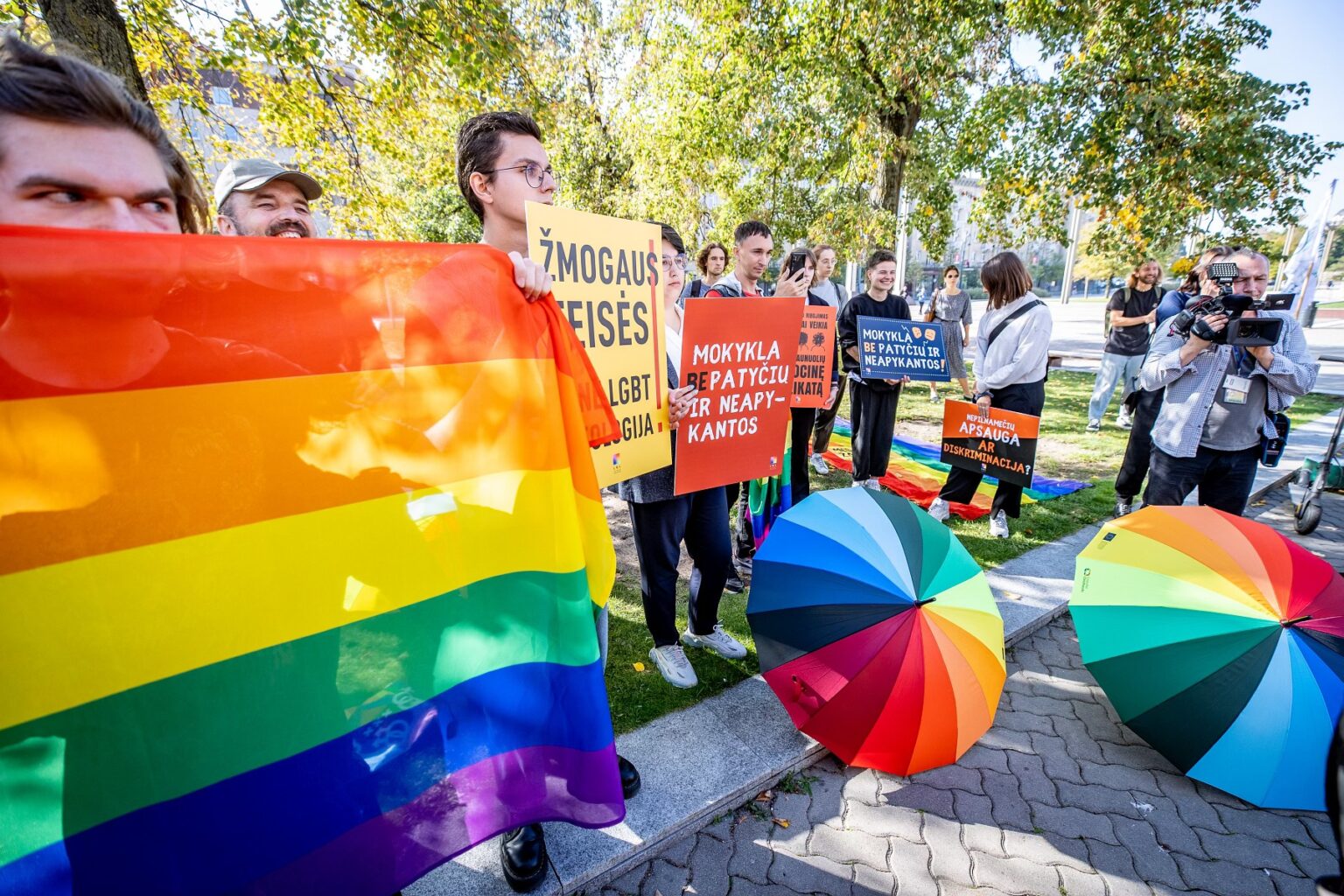
In a significant decision yesterday, Lithuania’s Constitutional Court ruled that a 15-year long ban on public depictions of LGBTI families should be repealed.
The Constitutional Court of Lithuania has declared the anti-LGBTI provisions of the Law on the Protection of Minors from Negative Effects of Public Information unconstitutional. These provisions, in place since 2009, had prohibited the depiction of LGBTI families in the public sphere, effectively stifling representation at public events and in the media.
The decision follows the European Court of Human Rights’ 2023 ruling in Macatė v. Lithuania, which found the law to violate Article 10 of the European Convention on Human Rights, safeguarding the right to freedom of expression. ILGA-Europe supported this case through a third-party intervention alongside Article 19 and the International Justice Clinic.
ILGA-Europe in association with the Lithuanian Centre for Human Rights and the Human Rights Monitoring Institute also supported our member organisation, LGL, through a Rule 9 submission to the Committee of Ministers of the Council of Europe concerning the implementation of the Macatė judgment.
The court’s reasoning empahsizes that:
- Information about diverse family models cannot be deemed inappropriate for minors.
- Laws must uphold respect for human rights, dignity, equality, pluralism, and tolerance.
- Minors deserve access to information that fosters their development into mature, well-rounded individuals.
According to Katrin Hugendubel, Advocacy Director at ILGA-Europe: “This landmark ruling marks a significant step towards ensuring that the rights of LGBTI people are respected in Lithuania. With this ruling, the anti-LGBTI provisions become ineffective and cannot be applied anymore. This is another confirmation from a highest courts that such laws are a violation of human rights and other courts should follow suit.”
Find out more about the current situation of protection of human rights of LGBTI people in Lithuania, on our interactive Rainbow Map.
For further context and details, see LGL’s statement here.
Russia failed to respond adequately to politician’s homophobic verbal assault, European Court finds

The European Court of Human Rights has found that Russia’s failure to respond adequately to homophobic verbal assault and physical threats by a politician against LGBTI activists is in breach of their human rights.
Last week, in case Yevstifeyev and others v. Russia, lodged by victims of homophobic hate speech in Russia, the European Court of Human Rights found a violation of Article 8 of the European Convention on Human Rights (right to private and family life), together with Article 14 (prohibition of discrimination).
The applicants are LGBTI rights activists who participated as part of the LGBTI column in a rally against hatred in St Petersburg where they had to face homophobic insults and physical threats from a well-known politician and member of the St Petersburg Legislative Assembly, who attended the rally. He also spread false information concerning the applicants.
The applicants lodged criminal complaints but the authorities refused to register them, claiming the politician had allegedly merely expressed his personal opinion about the LGBTI community. The applicants also lodged an administrative offence complaint and a civil complaint, which were dismissed on the grounds that the statements did not amount to insult, as they were not directed against specifically named individuals.
The Court first confirmed that the applicants had been directly targeted by the verbal assault and that the statements at issue affected their psychological well-being and dignity, and therefore fell within the sphere of their private life.
As to the authorities’ refusal to register the criminal complaints, the Court found that the domestic authorities had failed to strike a fair balance between the applicants’ rights to respect for their private life and to be protected from discrimination on the ground of sexual orientation on one hand, and the public interest in protecting freedom of expression on the other hand.
Turning to the administrative complaint, the Court found that the domestic authorities did not provide relevant and sufficient reasons for dismissing the administrative complaints. Lastly, as regards the civil proceedings, the Court ruled that, by finding that the applicants were not affected by the contested statement, the civil courts had failed to acknowledge the applicants’ rights to respect for their private life and to protection from discrimination on the ground of sexual orientation. The Court made clear that, contrary to the civil courts’ rulings, the politician’s statements could not be construed in a neutral way and were openly homophobic, had been particularly aggressive and hostile in tone, and included physical threats against the participants in the rally.
As a result, the Court concluded that the domestic authorities failed to comply with their positive obligation to respond adequately to the verbal assault and physical threats motivated by homophobia directed against the applicants. It recalled its previous ruling that “failure to address such incidents can normalise hostility towards LGBTI individuals, perpetuate a culture of intolerance and discrimination and encourage further acts of a similar nature.” The judgment can be accessed here.
Top European Court holds hearing on Polish refusal to recognise same-sex marriage certificate
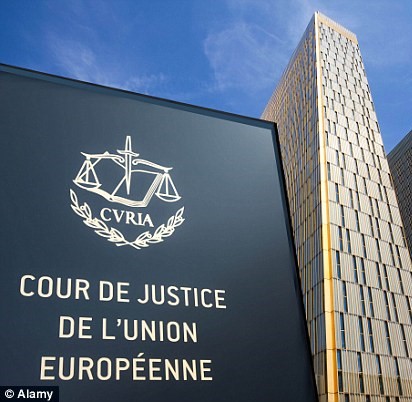
Case could establish critical precedent for the freedom of movement of same-sex couples within the EU
Yesterday, the Court of Justice of the European Union (CJEU) held a hearing in the case of Wojewoda Mazowiecki (C-713/23) concerning the recognition by Polish authorities of a same-sex marriage certificate obtained in another EU Member State.
The hearing follows Poland’s refusal to transcribe into the civil registry a certificate of same-sex marriage contracted in Germany between a Polish citizen and a Polish-German citizen. The couple currently resides in Poland.
The Court is asked whether this refusal conforms with the provisions of the Treaty on the Functioning of the European Union (TFEU) and of Directive 2004/38/EC, which establishes the rights of EU citizens to move and reside freely within the EU, read in conjunction with the European Charter of Fundamental Rights (ECHR), particularly the right to respect for private and family life and the prohibition of discrimination.
The Court is asked to follow the reasoning adopted in the recent judgment in the Mirin case, which confirmed that freedom of movement and other fundamental rights guaranteed under the Charter require authorities to transcribe changes to gender markers and forenames obtained in another EU Member State into their civil registries. By requiring Member States to amend entries in the birth certificates of EU citizens, Mirin ensures that the legal framework for registering and amending citizens’ data is consistent across EU Member States.
This would be a significant step towards the protection of same-sex couples across the EU, especially in light of recent European Court of Human Rights judgments in Przybyszewska and Others v. Poland which found the Polish state in violation of Article 8 (right to respect for private and family life) of the ECHR for failing to provide a specific legal framework recognising and protecting same-sex unions, and in Formela v. Poland which found that Poland breached the same provision for failing to recognise the relationships of two same-sex Polish couples married abroad.
According to Senior Strategic Litigation Officer with ILGA-Europe, Marie-Hélène Ludwig: “A positive ruling in this case would go beyond what the Court found in the Coman and Pancharevo cases and build on the Mirin judgment to recognise that transcription of marriage in civil registries is the only way to effectively ensure freedom of movement of same-sex couples in the EU, notably in countries still deprived of any legal framework recognising their union. This is especially important as marital status – just like one’s gender identity and sexual orientation – is a fundamental aspect of a person’s identity and personal status.”
According to attorneys Pawel Knut and Artur Kula from KMA Law Firm, the lawyers representing the applicants in the case: “The positive outcome of this case of may ensure that the transcription of the foreign marriage certificates of same-sex couples will be finally required from those Member States that still do not provide any form of legal protection for same-sex couples. We believe that this would also strengthen an effective protection for the rights of LGBT families around the EU”.
The Advocate General’s Opinion in this case will be rendered on 3 April 2025.ILGA-Europe is providing support to the applicants and their lawyers in this case.
Joint statement: EU Court of Justice strengthens trans rights by calling for the automatic recognition in birth certificates
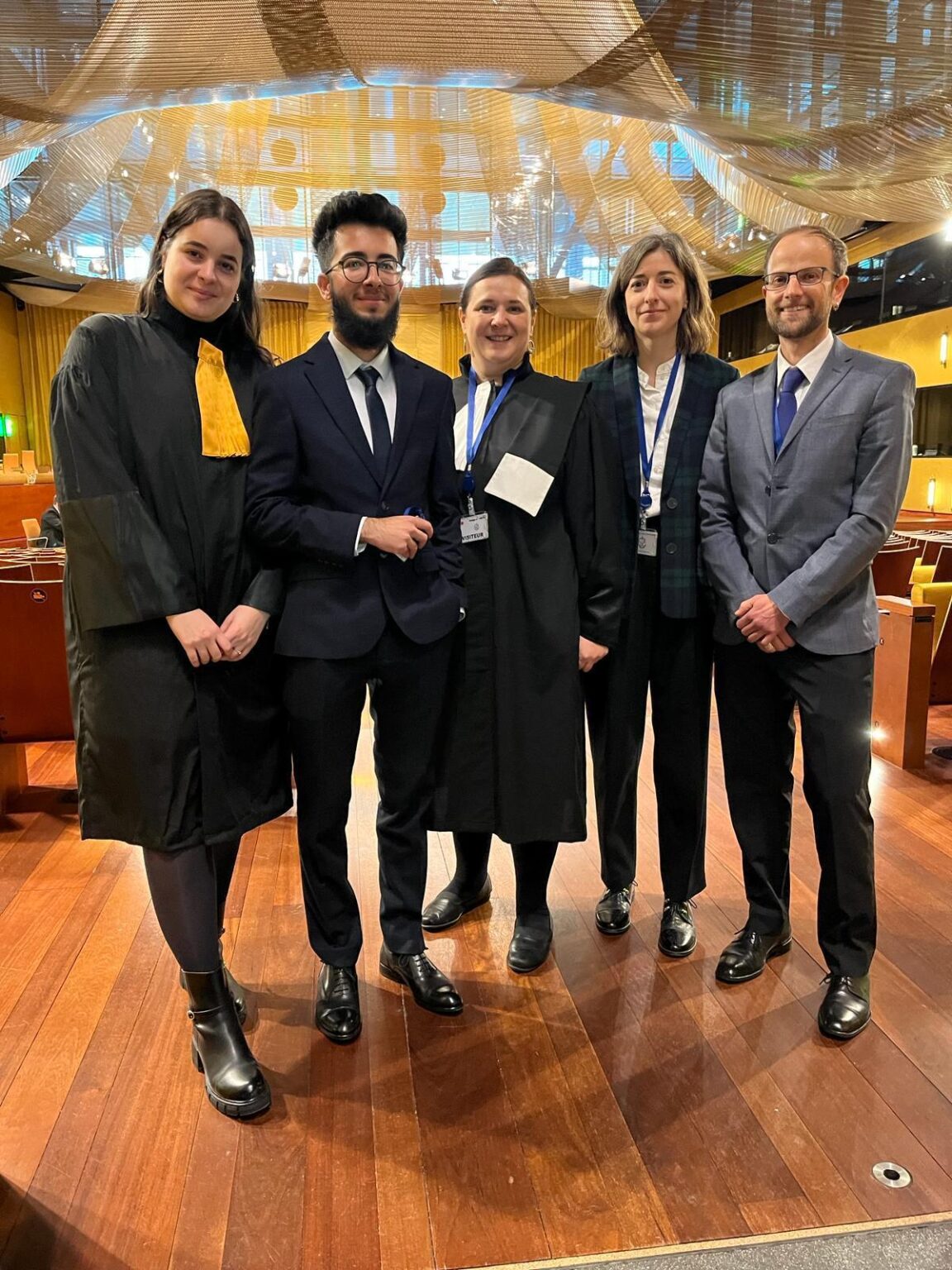
ACCEPT, TGEU and ILGA-Europe welcome today’s decision of the Court of Justice of the EU (CJEU) said that the refusal of an EU Member State to recognise changes of forename and gender acquired in another Member State is contrary to the rights of EU citizens.
The case C-4/23 Mirin concerns Arian Mirzarafie-Ahi, a Romanian trans man, with dual Romanian-British citizenship. Arian began the legal process to change his legal gender and name in 2017 and was granted a gender recognition certificate by UK authorities in 2020. At that time, the UK was in the Brexit transition period and still treated as a Member State of the EU. Subsequently, Romania refused to register the name and legal gender recognition of the applicant obtained in the UK and demanded that he go through Romania’s judicial legal gender recognition procedure. However, the European Court of Human Rights had already found that Romania does not have a procedure for change of name and gender marker that satisfies the standards of the European Convention of Human Rights (ECHR) of being quick, transparent and accessible.
The Romanian court asked the EU’s top court to clarify whether EU law required Romania to recognise another Member State’s decision acknowledging the name and gender marker of the applicant or if it could enforce its own procedures for legal gender recognition. In other areas of law, EU Member States commonly recognise each other’s decisions without further procedures. As such, this case marks a pivotal moment in addressing the mutual recognition of legal gender recognition decisions across EU Member States.
The CJEU Decision
The CJEU ruled in favour of Arian, stating that Romania must recognise the legal gender recognition granted in the UK. The Court emphasised that the refusal to acknowledge changes of forename and gender acquired in another Member State is contrary to the fundamental rights of EU citizens, particularly the principles of free movement and non-discrimination. The Court highlighted that mutual recognition of legal decisions among Member States is essential for upholding the rights of individuals within the EU, and that personal identity, including gender, is a fundamental element of one’s identity, protected under Article 7 of the Charter of Fundamental Rights and Article 8 of the European Convention on Human Rights. This landmark ruling reinforces the obligation of Member States to respect and recognise the legal gender identity of individuals as granted by other EU countries.
Impact
The importance of this judgement extends beyond the applicant’s individual circumstance, and underscores the broader issue faced by trans people whose legal gender recognition in one Member State is not acknowledged elsewhere in the EU, preventing them to travel freely, live, work or study across the EU, or even to vote, as any other citizen is able to. The judgement confirms the principle that rights legally obtained in one Member State must remain valid throughout the EU.
Reactions
According to Arian’s legal counsel, human rights lawyer Iustina Ionescu: “Today’s verdict has shown us that trans people are equal citizens of the European Union. When you have rebuilt a life in another part of the European Union because you are not welcome in your own country, it is normal to ask to be treated with dignity when interacting with the authorities in your home country. The fact that today the Court ruled on the mutual recognition of LGR decisions, no matter how different the procedures are in the Member States, should determine Romanian authorities to also adopt a fast, transparent and accessible national procedure, as requested by existing ECHR jurisprudence.”
TGEU Expert Advisor, Richard Köhler, said: “The CJEU’s ruling in the Mirin case is a monumental victory for trans people in Europe! Arian was forced to navigate a legal nightmare, facing the prospect of conflicting passports and demands for sterilisation to match his legal gender on Romanian and UK documents. Member States must recognise each other’s decisions—this is about equality and dignity. Romania, it’s time to act: Arian deserves his passport now, and the country needs a legal framework for recognising foreign gender identities.”
ILGA-Europe’s Senior Strategic Litigation, Marie-Hélène Ludwig added: “Today’s ruling confirms that without mutual recognition of legal gender recognition from one Member State to another, the right to freedom of movement and residence is not guaranteed for trans people in the EU. It is a great victory that shows the power of strategic litigation in the EU. This judgement will have an immensely positive impact, increasing legal protection for all trans people in the EU, all the more as certain EU countries like Romania still do not provide a legal framework for legal gender recognition conforming with European Court of Human Rights’ standards.”
Romanian NGO ACCEPT is a plaintiff in the case alongside Arian. TGEU and ILGA-Europe supported ACCEPT throughout the case, and joined Arian’s legal team at the Oral Hearing before the CJEU in January 2024.
Joint statement: EU Court of Justice Advocate General calls on Hungary to correct trans refugee’s gender marker in national registries

Háttér Society, ILGA-Europe and TGEU welcome an opinion from the Advocate General of the Court of Justice of the European Union stating that Hungarian immigration authorities must correct the gender marker of a trans person in its national immigration registries upon request.
Today, the Advocate General of the Court of Justice of the European Union (CJEU) has issued an opinion on the case of Deldits (C-247/23) calling on Hungary to correct the gender marker of the applicant in the national immigration registry upon request.
The opinion specifically relates to the case of a trans refugee in Hungary who has been denied legal gender recognition (LGR) in the asylum register since 2021. Represented by Háttér Society and the Hungarian Helsinki Committee, the complainant, who was granted refugee status in Hungary in 2014, has sought the rectification of his gender marker and name (as it reflected his sex at birth) on the national registry under Article 16 of the EU’s General Data Protection Regulation (GDPR).
This case raises crucial questions for the CJEU: whether the GDPR mandates the rectification of the gender marker on national registries upon request, and if so, does this request require evidence? If so, does it need to include proof of surgical intervention?
Advocate General Collins stated that following Article 16 GDPR in conjunction with Article 5(1)(d) GDPR Hungarian authorities need to rectify the gender of the applicant, whose data they recorded inaccurately in the first place. He also pronounced that while evidence might be requested, proof of surgical intervention cannot be required.
This case marks a pivotal moment in the ongoing battle for the rights of trans people in Hungary. The 2018 Constitutional Court decision and the 2020 European Court of Human Rights judgment affirmed the right of trans refugees to legal gender recognition. Nonetheless, the Hungarian legislature has not implemented the necessary changes. Hungarian citizens have not had access to LGR since May 2020, whilst refugees never had access to such recognition.
Eszter Polgári, Director of the Legal Program at Háttér Society, emphasised the potential implications of a ruling in line with the opinion: “The preliminary ruling reflecting the Advocate General’s opinion might have an impact beyond the specific case, as a positive decision of the Court of Justice of the European Union will hopefully force the legislator to reconsider the procedure on legal gender recognition also for Hungarian citizens, and bring it in line with international human rights and EU law, including the relevant provisions of the GDPR.”
TGEU Expert Advisor, Richard Köhler, adds: “Respect and recognition matter for everyone. For many trans people it is a significant step to living fulfilling lives. The Advocate General’s opinion is a substantial move towards EU Member States finally recognising their responsibility to introduce proper legal gender recognition procedures for all trans people.”
ILGA-Europe Senior Strategic Litigation Officer, Marie-Hélène Ludwig, said: “This opinion is a significant development for the rights of trans people in the EU, including refugees, particularly in countries still deprived of any legal framework for legal gender recognition, in breach of their international obligations. We are looking forward to the judgment confirming Member States’ obligation to record correct gender markers in all national registries.”
The Advocate General at the Court of Justice of the European Union offers independent, expert legal opinions on cases to guide the judges in making their final decisions.
The CJEU’s decision is expected at the beginning of 2025. It holds significant potential to influence the legal protections for trans people within Hungary and across the EU.
ILGA-Europe and TGEU – Trans Europe and Central Asia are providing support to Háttér Society in this case.
Joint statement on Italian Constitutional Court ruling on non-binary & trans persons’ rights

ILGA-Europe and TGEU welcome a judgement of the Italian Constitutional Court finding that non-binary peoples’ rights are protected under the Italian Constitution
In a judgment published last week, the Italian Constitutional Court found that non-binary peoples’’ rights are protected under the principles of social identity, equality of citizens and the right to health as guaranteed by the Italian Constitution. The Court did not, however, recognise a right to be registered as non-binary in Italian civil registries. The Court also repealed the legislative provision requiring trans people to obtain a court’s authorisation prior to accessing transition-related surgery.
ILGA-Europe and Transgender Europe (TGEU) welcome this decision but regret that the Court failed to recognise a right to a third legal gender option in Italian registries and identity documents. Our organisations submitted an amicus curiae in the case, expressing that the introduction of a third legal gender option protects the rights to self-determination, dignity and private life of many trans people, intersex people and people of other gender identities.
The decision follows a referral by a regional court on the case of a non-binary Italian citizen, raising two questions of constitutionality to the Constitutional Court.
Missed opportunity to recognise a third legal gender option in the Italian system
The first question concerned the current lack of a third legal gender option in Italian registries and identity documents.
The applicant argued that the failure to recognise non-binary gender identity harms individuals’ social identity (Article 2 of the Constitution) and equality before the law (Article 3 of the Constitution), since legal gender recognition is allowed only to those whose gender identity falls within the binary. The Court also examined a violation of the fundamental right to health under Article 32 of the Constitution, and whether the lack of recognition of non-binary gender identity compromises psychophysical wellbeing.
The Constitutional Court declared this question inadmissible, citing the wide repercussions that the introduction of a third legal gender option would have on various sectors of the legal system, which would necessitate a systemic legislative reform of the system and of the many institutions currently operating under the gender-binary logic.
However, the Court brought this question to the attention of the legislator. It noted that the lack of a third legal gender option in the Italian system can lead to unequal treatment and/or can compromise the psychophysical wellbeing of concerned individuals, which can in turn raise issues around the respect for social dignity and protection of health under Articles 3 and 32 of the Constitution.
The applicant, as well as ILGA-Europe and TGEU – Trans Europe and Central Asia in their third-party intervention, recalled that non-binary gender identity has now been recognised in numerous legal systems across Europe. Iceland and Germany are leading the way and Denmark and Malta partially acknowledge non-binary identities) [1]. A gender marker option in official registries and documents other than male or female (unspecified or third gender marker option) is an important issue for a growing number of people in trans and intersex communities. The EU Fundamental Rights Agency (FRA) found that nearly every second person in the trans community identifies outside of the gender binary, that is not (entirely) identifying as male or female [2].
The Italian Constitutional Court ruling was highly anticipated in this respect, and it could have triggered legislative changes inspiring other countries to follow suit and potentially transforming the landscape of non-binary rights in Europe.
Unconstitutionality of the obligation for trans and non-binary people to obtain judicial authorisation to access transition-related surgeries
The second question concerned the obligation in Legislative Decree no. 150 of 2011 for trans and non-binary people to obtain a court decision to be authorised to access transition-related surgical interventions.
The applicant argued that such an obligation violates the fundamental right to self-determination (Article 2 of the Constitution) and the right to equality before the law (Article 3), since requiring judicial authorisation for a medical procedure that is lawful is unreasonable. Such a requirement is also discriminatory, because other similar interventions not linked to gender identity, are left exclusively to medical judgment and to the patient’s consent.
The Court ruled that such a requirement was unconstitutional. It reiterated that for the purpose of legal gender recognition, it is necessary and sufficient to ascertain the “objective transition of gender identity” which can be accomplished through hormonal treatments and psychological-behavioural support, without a surgical intervention. As such, according to the Court, the blanket requirement for judicial authorisation before surgical interventions is manifestly unreasonable and unnecessary.
Notably, the Constitutional Court referenced the changing jurisprudential framework in Italy on this issue, highlighting the growing Italian case-law authorising surgery at the same time as ordering legal gender recognition.
Further to this ruling, trans and non-binary people in Italy will be able to obtain surgeries as part of their trans-specific healthcare without a judicial decision, a requirement that often led to arbitrary and lengthy procedures.
ILGA-Europe
TGEU (Trans Europe and Central Asia)
- As pointed out by the applicant, the EU itself provides standard forms containing three gender options Non-Binary gender identity is recognised under Regulation (EU) 2016/1191 of the European Parliament and the Council of 6 July 2016 on the free movement of citizens on promoting the free movement of citizens by simplifying the requirements for presenting certain public documents in the European Union and amending Regulation (EU) No 1024/2012
- Russell, Sanders, Watkins, Diving into the FRA LGBTI II Survey Data: Trans and non-binary briefing’, p. 3, available at: https://tgeu.org/intersecting-oppressions-trans-people-in-europe/
Latvia failed to protect human rights of victim of a homophobic attack, european Court finds

The European Court of Human rights has made a judgement in a case where the Latvian authorities declined to prosecute an anti-LGBTI attack as a hate-motivated offence
Earlier this month, in the case of Hanovs v. Latvia taken by the victim of a homophobic assault, the European Court found a violation of Article 3 of the European Convention on Human Rights (prohibition of torture and inhuman or degrading treatment) and Article 8 (right to private and family life), together with Article 14 (prohibition of discrimination).
The case concerned the attack on the applicant and his partner, a gay couple, when they were walking in Riga. The two perpetrators of the attack shouted homophobic slurs and physically assaulted the applicant. The applicant avoided further violence by fleeing into a shop and securing the door. The police and prosecutors declined to prosecute the attack on the applicant as a hate-motivated offence.
The Court found that the authorities had failed to offer adequate protection in respect of the individual applicant’s dignity and private life by ensuring effective prosecution of the attack against him, and to effectively investigate the hate motive behind the attack.
Importantly, the Court considered that “attacks on LGBTI individuals, triggered by expressions of affection constitute an affront to human dignity” so that the attack “not only undermine[d] the victims’ physical safety but also their emotional and psychological well-being, turning a moment of intimacy into one of fear and trauma.”
Furthermore, the Court ruled that such attacks “humiliate and debase the victims, conveying a message of inferiority of their identities and expressions.” As such, the case fell within the scope of Article 3 of the Convention (inhumane and degrading treatment).
The Court also pointed out the crucial importance of addressing impunity in cases of hate crimes as “failure to address such incidents can normalise hostility towards LGBTI individuals, perpetuate a culture of intolerance and discrimination and encourage further acts of a similar nature.”
Welcoming the judgement, ILGA-Europe’s Senior Strategic Litigation Officer, Marie-Hélène Ludwig said: “This judgment sends a strong signal in recalling State’s positive obligations in effectively addressing hate crimes against LGBTI people in Latvia and across Council of Europe member States amidst the rise in hate incidents in a number of countries.”
The judgment can be accessed here.
Trans woman should have been allowed access to hormone therapy in prison, says European Court

The European Court of Human Rights has found that Poland violated Article 8 of the European Convention on Human Rights, protecting the right to private and family life, when a trans woman was denied access to hormone therapy in prison
On July 11, the European Court of Human Rights (ECHR) passed judgement in a case concerning the refusal by Polish authorities to allow a trans woman to continue hormone replacement therapy in prison, although she had already undergone such therapy for nearly one and a half years in two previous prisons.
The Court found that the authorities had failed to justify their refusal on any reasonable grounds, and did not provide sufficient explanations as to why the treatment might have been detrimental to the applicant’s health.
To the contrary, the Court pointed out that hormone replacement therapy had beneficial effects for the applicant’s physical and mental health and that the prescribing doctors had considered it necessary and urgent for the applicant to access such care. As such, the Court concluded that the Polish authorities had failed to strike a fair balance between the competing interests at stake, especially in light of the need to protect the applicant’s health as well as her interest in continuing hormone replacement therapy.
Transgender Europe (TGEU) intervened on this case. The judgement can be downloaded here.
Joint statement in support of South African athlete Caster Semenya

ILGA-Europe, The International Commission of Jurists and the organisation Intersex International Europe jointly file a third-party intervention before the Grand Chamber of the European Court of Human Rights in a case concerning the South African athlete Caster Semenya
In July 2023, in its judgment in the case of Semenya v. Switzerland, the Chamber of the third section of the European Court of Human Rights (ECtHR) had ruled in favour of Caster Semenya, a South African Olympic runner, finding that Switzerland had violated her right to freedom from discrimination, taken together with her rights to respect for private life and to an effective remedy had been violated.
The case had arisen from a complaint brought to the Strasbourg Court against witzerland by Caster Semenya, a South African international-level athlete specializing in middle-distance races (800 to 3000 metres). She had refused to comply with the “Eligibility Regulations for the Female Classification (Athletes with Differences of Sex Development – the DSD Regulations)” of the International Association of Athletics Federations (IAAF, now World Athletics), requiring her to reduce her natural testosterone level through hormone treatment in order to be allowed to participate in international competitions in the women’s category, since the side-effects of such treatment were not well understood. Her failure to comply with the DSD Regulations resulted in her being barred from participation in international competitions.
Notwithstanding the July 2023 ECtHR judgment, Semenya and many other women athletes continue to be banned from competing in sports under World Athletics regulations. Later that year, the Swiss government filed a referral request to the Grand Chamber of the ECtHR for a final ruling on Semenya’s case. A hearing in the case will take place in Strasbourg on 15 May 2024.
Kaajal Ramjathan-Keogh, Director of ICJ’s Africa Programme, said, “The Grand Chamber of the ECtHR will have the opportunity to consider Semenya’s complaint of human rights violations and the broader question of discrimination against athletes with hyperandrogenism, a condition characterized by higher than usual levels of testosterone, a hormone that increases muscle mass and strength. Under World Athletics regulations women like Semenya, who have naturally occurring higher testosterone levels associated with Differences of Sex Development (DSD), are barred from competing – unless they subject themselves to medically unnecessary interventions to reduce their testosterone levels and conform to an arbitrary and subjective standard of femininity.”
Organisation Intersex International Europe (OII Europe), ILGA-Europe (the European Region of the International Lesbian, Gay, Bisexual, Trans and Intersex Association) and the International Commission of Jurists (ICJ) filed a joint submission before the Grand Chamber of the European Court of Human Rights to assist the Grand Chamber in its determination of the case. The joint submission focuses on the place of intersex athletes in competitive sports and sporting fairness for all athletes. The submission analyses World Athletics’ constantly evolving rules, which – due to their strict prerequisites – effectively limit and/or prevent the participation of intersex athletes in international sporting competitions. Even though new regulations were issued in 2021 and again in 2023, the submission deals in chief with the 2018 regulations as these are the ones being contested before the Court.
The submission focuses on the following issues:
• The DSD Regulations discriminate against intersex athletes on the grounds of sex within the meaning of Article 14 of the European Convention of Human Rights (ECHR), as well as on the grounds of sex characteristics – in particular, genetic characteristics – which, in turn, fall within the protective scope of the same provision. The joint interveners have provided the Grand Chamber with a comparison between the 10 December 2021 Regulations, 31 March 2023 Regulations, and the 2018 Regulations to show that World Athletics is continually restricting access to sport for intersex and other athletes without “particularly weighty and convincing reasons” by way of justification.
• The 2018 DSD Regulations were less restrictive than the subsequently issued rules as they only limited participation in the following races: 400m races; 400m hurdles races; 800m races; 1500m races; one-mile races; and all other Track Events over distances between 400m and one mile, whether run alone or as part of a relay event or a Combined Event. The 2018 Regulations were nevertheless discriminatory to intersex athletes.
• The submission expands on the wider detrimental effect of the DSD Regulations on the human rights of youth, children and intersex athletes.
• The submission makes brief remarks on the right of access to justice and the right to an effective remedy under international law and standards, including Articles 6 and 13 of the European Convention on Human Rights.
Dan Christian Ghattas, Executive Director of OII Europe, said, “The submission sets out that the 2018 DSD Regulations fall foul on sex characteristics as a ground for discrimination without ‘particularly weighty and convincing reasons’ by way of justification and, as a result, impermissibly discriminate against intersex athletes under Article 14 of the European Convention on Human Rights. In particular, the joint submission underscores the significance of the findings in the Chamber judgment establishing sex characteristics as a prohibited ground under Article 14 of the Convention.”
According to Katrin Hugendubel, Advocacy Director at ILGA-Europe, “Despite claims from the World Athletics that the DSD Regulations will not prevent any women from competing in athletics, they have the effect of forcing some women with variations of sex characteristics to choose between undergoing medically unnecessary interventions to lower their testosterone levels or be precluded from participating in international sport. This is yet another example of discrimination faced by intersex athletes who are exposed to invasive medical examinations and interventions that have a dramatic impact on their ability to participate in competitions, and which may have life-long physical and psychological consequences.”
Background to the case
The 2019 regulations are the ones that are in question in the case, despite regulations also being issued in 2021 and 2023. Sports governing bodies argued that the 2019 regulations broke from the past 50 years of sex testing women athletes, a practice that was humiliating, degrading and discriminatory. However, the revised 2019 regulations still subjected women athletes to sex eligibility criteria that retain these negative, rights-abusing consequences.
Semenya unsuccessfully challenged the 2018 regulations in the Court of Arbitration for Sport based in Lausanne in April 2019. She then appealed to Switzerland’s highest court, the Federal Tribunal, which dismissed the case on grounds that sports regulations violating women’s rights cannot be struck down as inconsistent with Swiss public policy. They added that the DSD regulations were an appropriate, necessary, and proportionate means of achieving the legitimate aims of fairness in sport.
In its July 2023 judgment, the third section of the ECtHR found that Semenya had not been afforded sufficient institutional and procedural safeguards in Switzerland to allow her to have her complaints examined effectively, especially since her complaints concerned substantiated and credible claims of discrimination as a result of her increased testosterone level caused by differences of sex development (DSD). It followed, particularly with regard to the high personal stakes involved for Semenya – namely, participating in athletics competitions at the international level, and therefore practising her profession – that Switzerland had overstepped the narrow margin of appreciation afforded to it in the present case, which concerned discrimination on the grounds of sex and sexual characteristics requiring “very weighty reasons” by way of justification. The high stakes of the case for Semenya and the narrow margin of appreciation afforded to Switzerland should have led to a thorough institutional and procedural review, but Semenya had not been able to obtain such a review. The Court also found that the domestic remedies available to the applicant could not be considered effective in the circumstances of the case.
The 2018 DSD Regulations require a blood testosterone level below five nmol/L for a continuous period of at least six months. The 2023 DSD Regulations, in turn, impose an even lower threshold with respect to the concentration of testosterone in the serum of relevant athletes, namely, below two point five nmo/L. In comparison with the 2018 DSD Regulations, the 2023 DSD Regulations betray an even more misogynistic nature and are a fortiori discriminatory to athletes with variations of sex characteristics. Moreover, the 2023 DSD Regulations’ restricted testosterone level does not just affect intersex persons, but also endosex (i.e., non-intersex) women in general.
In November 2023, Switzerland successfully requested a referral of the case to the Grand Chamber of the ECtHR on the grounds inter alia that Switzerland lacked jurisdiction; that the case did not involve the application of Swiss law; that the Chamber’s ruling would require a fairly fundamental review of the system of judicial review of international arbitral awards requiring alignment with the judicial review of judgments handed down by national courts and this would run counter to the aims of international arbitration and would significantly reduce the attractiveness of this method of dispute resolution.
EU Court of Justice Advocate General calls for automatic recognition of legal gender recognition in birth certificates

An opinion from the Advocate General of the Court of Justice of the European Union states that documents received in the UK by Romanian trans man must be recognised in his home country.
In a significant development regarding the rights of trans people in the European Union, the Advocate General of the Court of Justice of the European Union (CJEU) has issued an opinion calling for the automatic recognition in birth certificates of new name and gender marker acquired in a Member State.
The opinion specifically pertains to the case of Arian Mirzarafie-Ahi, a trans Romanian man facing his home country’s authorities’ refusal to recognise in his birth certificate his new gender marker, acquired further to his legal gender recognition in the United Kingdom.
Advocate General Jean Richard de La Tour said it was imperative that the Romanian state record in his birth certificate entries related to his name and gender without additional procedures. This recognition, argued the Advocate General, is essential in upholding the rights to free movement and private and family life guaranteed by the European Union.
Arian’s case, supported by the ACCEPT Association, ILGA-Europe and TGEU, marks a pivotal moment in addressing the mutual equivalence of legal gender recognition (LGR) procedures across EU Member States.
The refusal of authorities in Romania to recognise Arian’s UK-issued identity documents has left him in a precarious situation, living with two different identities. Despite being a citizen of the European Union, Arian’s ability to exercise his freedom of movement and his right to private and family life is hindered by the lack of recognition of his true identity in his home country. This discrepancy exposes him to discrimination and humiliating treatment, particularly at border crossings.
Expressing anticipation for a favourable judgment from the CJEU, Arian emphasised the significance of having his identity accurately represented in official documents. “The favourable judgment of the CJEU is extremely important for me and many other Romanian and EU citizens,” he said. “It is about respecting a fundamental civil right. I am Romanian, I am in the European Union, I am trans. My documents must represent me and be updated.”
The importance of this case extends beyond Arian’s individual circumstances. It underscores the broader issue faced by thousands of individuals whose rights are compromised due to disparities in identity recognition among EU Member States. The opinion of the Advocate General reinforces the principle that rights legally obtained in one Member State must remain valid throughout the EU.
In response to the Advocate General’s opinion, Katrin Hugendubel, Advocacy Director at ILGA-Europe, added: “The AG opinion confirms what we have been pointing out for EU institutions for quite some time: without mutual recognition of legal gender recognition from one member state to another, the right to freedom of movement is not guaranteed for trans people in the EU. We are looking forward to the judgement confirming this opinion and urge the European Commission yet again to put forward legislation that will guarantee the freedom of movement for all LGBTI people under its next term. The EU directive on parenthood recognition is a very important piece of the puzzle to ensure the freedom to reside and move across the EU for LGBTI people, but more is needed to ensure that trans people can move freely across the EU and enjoy citizenship rights on equal footing with every other citizen of the EU.”
As the CJEU deliberates on this case, there is a collective hope that the judgment will align with the opinion of the Advocate General and ensure the automatic recognition of Arian’s legal gender recognition in the corresponding entries of his birth certificate by the Romanian state. However, we hope that the Court will not take into account in its judgment the questions of “marriage and parentage” emphasised by the Advocate General in his Opinion, which are not at stake in Arian’s case.
European court to hear landmark case regarding discrimination against non-binary people

The Court of Justice of the European Union is to decide on lawsuit over the lack of provision of an option for non-binary persons, which may have a far-reaching effect
On Monday, April 29, the Court of Justice will be required to answer the question: Does GDPR and European non-discrimination law require organisations to provide an option for non-binary persons in their forms?
The hearing follows a lawsuit filed by the Mousse Association, representing 64 individuals, against France’s national state-owned railway company’s (SNCF) practice of forcing passengers to choose between the civil titles “Mr” or “Ms” when purchasing train tickets. If the association wins the case, private and public organisations in the 27 European Union States will have to either stop collecting gender markers when it is unnecessary or provide an option for non-binary persons in their forms.
This would be a significant step forward for the rights of non-binary persons, but also LGBTI people who do not identify within the gender binary.
The case relies on the General Data Protection Regulation (GDPR), invoking the principles of data minimisation and accuracy and European non-discrimination law. It aims to set a significant precedent for the inclusion of all gender identities in the European Union, by requiring forms without any reference to gender markers or with inclusive options.
According Senior Strategic Litigation Officer with ILGA-Europe, Marie-Hélène Ludwig: “The upcoming hearing is a crucial step to put an end to the misgendering and discrimination faced by non-binary persons who are forced to choose in their day-to-day lives between two options that do not correspond to their identity.”
According to Mr Étienne Deshoulières, the lawyer representing the Mousse Association: “This procedure is not only a fight against outdated forms, but a battle for the recognition and respect of each individual in their singularity. It defends the right of every person not to be trapped in the gender binary that does not correspond to their true identity. It is a question of respect for fundamental rights to self-determination, non-discrimination and the protection of personal data.”
ILGA-Europe, alongside Transgender Europe (TGEU), are providing support to the applicants and their lawyers in this case.
Inventory of relevant SOGIESC case law and pending cases before the ECtHR and CJEU 2024

In order to focus our strategic litigation efforts across Europe to fully protect and advance LGBTI rights, with this inventory ILGA-Europe wants to support members and partners across the region to identify trends and gaps in protection at the European level, which can commonly be tackled through litigation. The inventory can further strengthen cooperation and help guide our work and efforts by others in bringing forward and supporting strategic cases.
This inventory and continuous assessment of the European landscape informs ILGA-Europe’s ongoing engagement in strategic litigation through identification and support of strategic opportunities.
This inventory covers relevant SOGIESC cases from 2010 up until December 2023.
Significant European Court judgments in two cases concerning violence against LGBTI people involving state agents

Two successful European Court cases brought against Russia underline state obligations to protect LGBTI community from violent counter demonstrators and general hate motivated violence.
ILGA-Europe welcome yesterday’s judgments from the European Court of Human Rights in Romanov and Others v Russia and Lapunov v Russia. Romanov and Others v Russia concerned Russia’s failure to prevent and protect LGBTI community members from homophobic violence during peaceful demonstrations and ensure effective investigation. The applicant in Lapunov v Russia was one of the victims of the “anti-gay purges” that took place in Chechnya in 2016-2017, having been detained and tortured in March 2017.
According to ILGA-Europe’s Head of Litigation, Arpi Avetisyan, “These cases are of great significance for the recognition of the rights of LGBTI people that have suffered by inaction or actual infliction of violence by state agents.
“Importantly, the Court observed that even when investigations were initiated, the homophobic nature of the attacks was rejected by the authorities, therefore could not be considered as effective.”
The Court found that physical and phycological treatment suffered by Mr Lapunov in Chechnya amounted to discriminatory torture under the European Convention of Human Rights. Furthermore, the authorities failed to carry out effective and meaningful investigation to uncover violence based on sexual orientation, despite all the evidence provided.
Russian LGBTI organisations, who worked to support both cases before the Court, note that although Russia has left the Council of Europe and is not party to the European Convention since March 2016, it is unlikely to implement these judgments. They are however symbolically important for persecuted people in Russia, as they give hope and a sense of support from the international community. It is crucial that state-sponsored homophobia does not go unnoticed.
Avetisyan concluded: “These cases are another affirmation by the Court on Council of Europe member state obligations to protect LGBTI community from violent counter demonstrators and general hate motivated violence, and to ensure timely and effective investigations in such cases.”
Romania failed to protect same-sex couples, European court rules
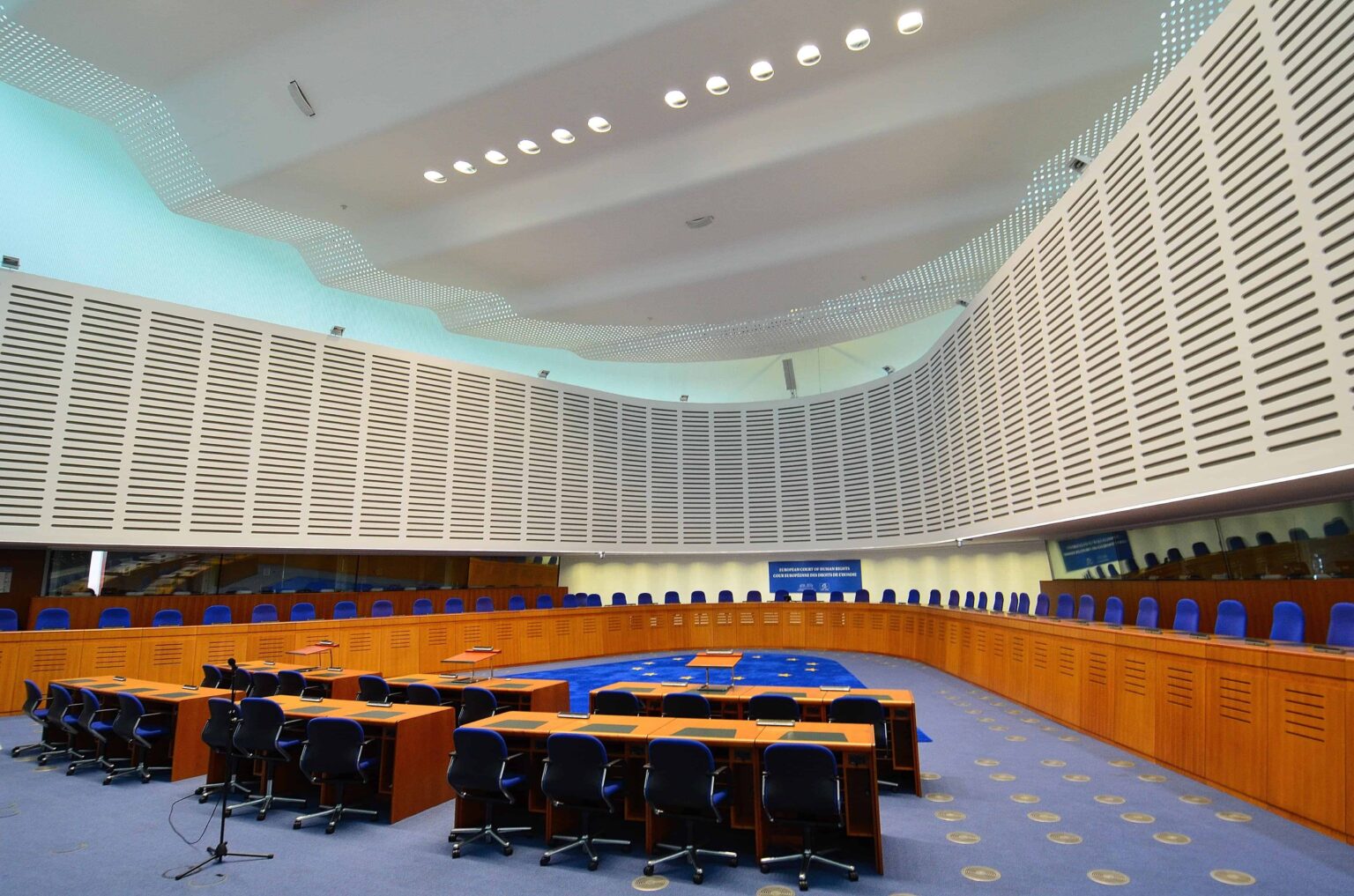
European court has found that Romania breached the right to respect for the family life of 21 same-sex Romanian couples by failing to recognise their relationships.
In a ruling released today, the European Court of Human Rights (ECHR) found that Romania violated Article 8 (right to respect for private and family right) of the European Convention on Human Rights.
21 same-sex couples lodged over two dozen complaints to the ECHR between 2019 and 2020 arguing that, because Romania does not recognise any type of same-sex union, it was impossible for them to legally safeguard their relationships. The couples, born between 1967 and 1996, were all of Romanian nationality and currently live in various parts of the country.
The couples turned to the European court since local authorities had refused their demands. After living together for different lengths of time, the couples gave notice to the local registry offices of their intention to marry. All requests were rejected because according to the Romanian Civil code “marriage is concluded between a man and a woman” and same-sex marriage is prohibited.
In its ruling, the ECHR reiterated that Council of Europe member states are required to provide a legal framework that protects and recognises same-sex relationships. It also referred to a previous judgment Fedotova and Others v. Russia and remarked that states have some discretion on the form of recognition.
The court concluded its decision by noting that “none of the arguments put forward by the [Romanian] Government to justify the restriction on legal unions to heterosexual marriage could outweigh the applicants’ interest in having their relationships recognised.”
The 21 couples had declared that they were unable to access numerous rights available for married couples such as protections in property or inheritance, and other obstacles all same-sex couples in Romania face. ILGA-Europe provided third-party submissions jointly with FIDH, NELFA and ECSOL.
This May, Romania, ranked 41st on ILGA-Europe’s annual Rainbow Map and Index. Close to its fifth anniversary, Romania has not yet implemented the landmark judgment issued by the CJEU recognising the freedom of movement of same-sex spouses in the EU.
Romanian transgender man’s landmark case requesting that Romania acknowledges his UK gender recognition referred to the Court of Justice of the European Union

Arian Mirzarafie-Ahi, a transgender man with Romanian and British citizenship, has filed a first-of-its-kind lawsuit in Romania against Romanian authorities over their refusal to recognize his new male name and gender identity acquired in the United Kingdom (while still treated as an EU Member State). The lawsuit, which raised fundamental questions under EU law, has now been referred to the Court of Justice of the European Union (CJEU) in Luxembourg.
ACCEPT Romania, a leading Romanian NGO for LGBTQ+ rights, is helping Arian bring this landmark legal claim before the CJEU to have his new gender identity acknowledged in Romania, in accordance with his free movement and citizenship rights.
Arian began the legal process to change his gender identity markers and name in 2016. He was ultimately granted a gender recognition certificate by the UK authorities in 2020, during the Brexit transition period (when the UK was still treated as an EU Member State).
Romania now refuses to acknowledge the name and gender recognition that Arian received in the UK. Instead, it is demanding that Arian undergo Romania’s own gender recognition procedure, which has already been found to violate the European Convention on Human Rights. As a result, Arian now finds himself with two different identities across two countries, which has impacted his well being, his freedom of movement, and his EU citizenship rights.
This situation is humiliating and deeply affects Arian’s right to dignity under the Universal Declaration of Human Rights and the European Convention on Human Rights. Arian’s ability to travel freely in the EU, like any EU citizen, has been unjustifiably restricted, including his ability to visit family members in Romania, because his Romanian passport displays the wrong identity.
Arian’s case is the first of its kind to reach the European Courts. He hopes the CJEU will side with him and rule that the Romanian authorities should acknowledge his UK gender recognition and issue him new identity documents with the correct name and gender, without subjecting him to the full Romanian gender recognition procedure.
This case could set a precedent for other transgender people whose gender recognition in one Member State is not being acknowledged elsewhere in the EU, harming their ability to travel freely, reside, work or study across the EU, or even to vote.
The Court will also have the opportunity to confirm that the rights that EU citizens lawfully acquired in the UK when it was still treated as a Member State, such as Arian’s gender change, are portable when those citizens wish to exercise their free movement rights.
Arian and ACCEPT are represented by human rights lawyer Iustina Ionescu and assisted by leading international law firm White & Case on a pro-bono basis.
The facts of this case are as follows.
Background to the case
Arian was born in Romania and migrated to the UK in 2008, and later gained dual citizenship. He started the medical and legal transition in the UK in 2016 at the age of 24, and obtained a UK gender recognition certificate in June 2020, when the UK was still treated as an EU member state.
Arian attempted to register his name and gender change with the Romanian authorities in 2021, but his request was denied. Instead, the Romanian authorities demanded that Arian undergo the full Romanian gender recognition procedure before the national courts. That procedure has already been found to be in violation of human rights by the European Court of Human Rights (X and Y v Romania).
Arian then filed lawsuits in the Romanian national court against the Directorate for the Persons’ Records in Cluj, Romania; against the Civil Status Service, the Directorate for the Persons’ Records and the Administration of Databases and against Cluj Municipality represented by Emil Boc, over their refusal to change his identity documents through a simple administrative procedure.
Through this legal action, Arian is requesting that the national courts oblige the Romanian authorities to change his gender and first name, as well as to issue a new birth certificate.
Before Brexit, Arian could have travelled based on his British passport that reflects his gender identity. However, since Brexit, he can exercise his EU citizen rights only through his Romanian identity documents, which do not reflect his gender identity.
Alongside this breach of Arian’s fundamental rights, especially his right to free movement and residence in the EU, this disparity between his Romanian and British documents exposes him to humiliation and discrimination.
Arian has to travel to the EU with a Romanian passport that reflects neither his gender identity nor his appearance, or must travel on his UK passport as a non-EU citizen.
Considering that Arian’s case raises new issues of principle requiring the interpretation of EU law, in particular in relation to free movement rights and EU citizenship, the Romanian court has decided to refer the case to the European Court of Justice for a preliminary ruling. After hearing the parties, both in writing and orally, the Court of Justice will render a judgement that will be binding on the Romanian courts and throughout the EU.
Quotes
Arian said: “My entry into Romania’s territory, the country where I was born and where I have family members that I want to visit, depends on a set of identity documents that do not reflect who I am.
Due to the Romanian State’s refusal to recognise my gender identity and issue updated documents, I have already been a victim of discrimination at Romanian airports.
“All that I want is to be respected as a Romanian and European citizen and to have my Romanian identity documents updated, just as my UK documents were when I transitioned. I want to be able to enjoy all my rights, but especially my right to dignity.”
His lawyer, Iustina Ionescu, said: “The Romanian state once again violates European law and disregards the efforts made by a Romanian citizen to obtain the recognition of his gender identity in another EU Member State.
“For over a year and a half, the Romanian civil status authorities have sent Arian on a fool’s errand – they have forced him to once again go through a procedure that is entirely random in Romania, and that has already been declared by the ECtHR as violating human rights, and that does not guarantee him a solution of the situation.
“Before being European citizens, we are Romanian citizens, and the state should do its duty towards all its citizens. Fortunately, we can turn to European justice to ensure that we receive equal treatment without discrimination. The European Court of Justice has ruled many times that EU member states should refrain from taking decisions that restrict free movement and the rights of EU citizenship, as Romania did in this case.”
Florina Presadă, executive director of ACCEPT, commented: „ACCEPT Association has been working for years to put an end to the discrimination and abuse that the Romanian state subjects transgender persons in Romania by not providing a legal gender recognition procedure and all services required so that transgender persons can exercise their right to self-determination.
We have been providing legal counselling, psychological support and guidance in transition for years for transgender Romanian citizens, and we have also supported strategic litigation cases in order to show, beyond any doubt, that the rights of transgender persons in Romania are being violated. Our goal is to put an end to the current laws, policies and practices leading to the discrimination of transgender persons.
We stand by Arian, as we stand by every transgender person in Romania and in any other EU member state that does not recognize these persons’ rights to self-determination and dignity. We hope this ruling will show that European rights are for everyone, regardless of gender identity or expression.”
Patrick Brăila, trans activist, declares: “Among the Romanians who left for other European countries for a better life, there are also transgender Romanians who work and live in these states, where they managed to obtain citizenship and which became their adoptive countries. One of them is Arian, a Romanian and British citizen, whom the Romanian state humiliated and wronged when it did not recognize his identity and put him in abusive and intrusive situations. We trust that the CJEU will give him justice, thus restoring the dignity of both him and other trans people who know that their rights as European citizens can no longer be violated.”
“To paraphrase Ursula von der Leyen, if you are trans in one member State, you are trans in all member States. This needs to be settled once and for all,” comments Lenny Emson, TGEU Executive Director. “Having to go through the ordeal of having your gender identity vetted several times is unfair and puts trans people at a clear disadvantage when compared to others living in the EU. Romania, in particular, has no quick, transparent, and accessible legal gender recognition procedures, as confirmed by the European Court of Human Rights. We are proud of Arian for claiming his right to enjoy his EU right to freedom of movement.”
Katrin Hugendubel, Advocacy Director at ILGA-Europe added: “This case is just one example of what trans people in the EU have to go through when their gender recognition from a Member State is not recognised in another, forcing them to undergo the full legal recognition procedure again. This is particularly difficult and troubling in those countries that lack an LGR procedure in conformity with international human rights law standards. This judgment from the CJEU will establish a clear obligation to recognise gender recognition from one Member State in another. It will rightfully enable trans people to move freely across the EU, and to enjoy EU citizenship rights on equal footing with everyone else.”
For further information and interviews, please contact Diana Dragomir, Head of communication & PR ACCEPT Romania at diana@acceptromania.ro or Florina Presadă, Executive Director of ACCEPT Romania at florina@acceptromania.ro.